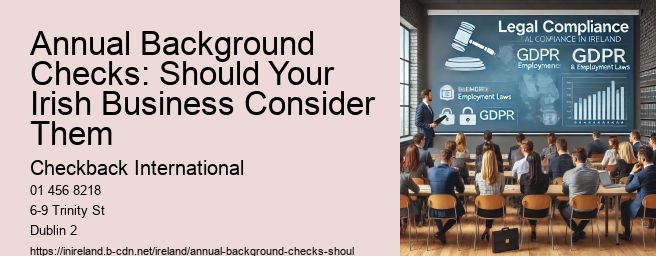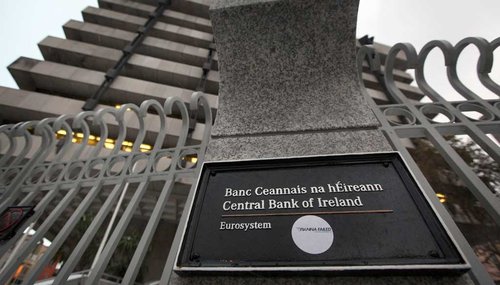

The checks must match job requirements without affecting candidate privacy rights. Limited access to criminal records makes the process difficult for jobs that need Garda vetting. Irish employers must also balance social media review with anti-discrimination rules, which requires clear communication throughout the screening process.
Organizations like Checkback International Services and Executive Vetting Solutions conduct thorough reviews of potential employees' histories. These checks examine court records, bankruptcy information, and European criminal records, providing employers with comprehensive information about candidates' backgrounds.
Airside security vetting is part of Ireland's pre-employment screening process for positions requiring airport access and known consignor status. Checkback works with UK recruitment teams to provide BS7858 security vetting services for airside positions.
1.Criminal Record Checks: Reviews local and international jurisdictions for complete profiles.
Criminal record checks cover both domestic and European jurisdictions, while directorship history shows past corporate affiliations.
Cross-Border Screening Procedures
5.Identity Verification: This authenticates a person's identity by checking government-issued documents.
Comprehensive Details on Consumer Credit Stress Checks
Are International Qualifications Verified Differently From Irish Qualifications?
Bankruptcy and Insolvency Check
2.Cross-border employment verification includes CV authentication services that check work experience across European institutions.
What Happens if a Candidate Fails to Meet PSA Standards?
How Long Are Pre-Employment Screening Results Valid For?
Irish Courts Service

Checkback International follows these standards through security protocols and regular audits of their data handling processes.
This software cross-verifies information from multiple international databases for thorough background checks. Digital application forms and virtual document verification help process candidate details, while algorithms find inconsistencies.
When reviewing background checks, companies need to weigh the practical elements of the vetting process, including time and cost factors.
Digital technology has improved PSA vetting processes. Here are ways to make background checks faster and more efficient:
If you receive a negative background check result, you can appeal the decision.
Pre-employment vetting in Ireland includes background screening processes that follow national and EU regulations. Organizations conduct criminal record checks through the ECRC system, which provides information from 26 EU member states. The process involves consumer credit checks, verification of previous employment, and specific security clearances for roles like airport access. Standard processing times range from 24 hours to 10 working days. Different industry sectors have specific requirements and compliance measures.

These checks show financial history and help determine an individual's accountability and reliability. They are a key part of the screening process, particularly for positions involving financial decisions or handling money.
3.Retail: Standards reduce risks of cash handling and theft, protecting assets and staff.
Privacy and data protection laws in most locations safeguard this information. While some jobs require medical fitness tests, these occur separately from regular background screening and relate only to specific job duties.

A background check in Ireland involves reviewing a person's criminal, financial, or personal records to assess their suitability for a role or position.
The duration can vary but typically takes between 1-2 weeks, depending on the type and complexity of the check.
Garda vetting is a specific type of background check required in Ireland for individuals working with children or vulnerable adults, involving checks against police records.
Yes, you must obtain consent from the individual before conducting any background checks in Ireland.
Not for all employees, but certain sectors such as healthcare and education may require comprehensive checks.
It includes checking for any criminal convictions or offences recorded against the individual.
Yes, individuals can request their own background checks in Ireland for personal review or to prepare for employment screenings.
Skipping background checks can lead to hiring unsuitable candidates, which may result in legal and reputational risks.
Yes, police clearance is a general criminal record check, while Garda vetting is specific to roles involving vulnerable groups and includes more detailed investigations.
You can request transcripts or degrees directly from educational institutions or use third-party services that specialize in educational verifications.
Information about spent convictions, certain types of personal data, and other protected characteristics under GDPR is off-limits unless specifically relevant and lawful to access.
International checks may involve additional complexities such as different laws, languages, and longer processing times.
No, background checks do not affect your credit score as they do not involve a credit inquiry that would impact the score.
Best practices include securing data in compliance with GDPR, limiting access to authorized personnel, and ensuring data is stored for only as long as necessary.
It depends on the industry and role, but typically every 2-3 years or when significant changes occur in the individual’s role or responsibility.
While not specific by law, many IT positions require checks due to access to sensitive or proprietary information.
GDPR regulates the processing of personal data, ensuring that background checks are conducted in a lawful, fair, and transparent manner.
Yes, but it must be done lawfully and with the individual’s consent, considering the relevance to the role.
Penalties can include fines, legal actions, and reputational damage, depending on the severity of the non-compliance.
Remote work has increased the importance of thorough background checks, especially for those in positions of trust or handling sensitive data.
Best practices include conducting similar checks as for permanent staff, especially if they have access to sensitive or critical areas.
Ensuring fairness involves following consistent procedures, obtaining consent, and allowing candidates to dispute inaccuracies.
Yes, it’s recommended to tailor background checks based on the specific risks and requirements of each position.
Signs include transparency about services, compliance with legal standards, positive reviews, and strong data protection practices.
Handling involves assessing the relevance to the job, discussing findings with the candidate, and considering legal and ethical implications.